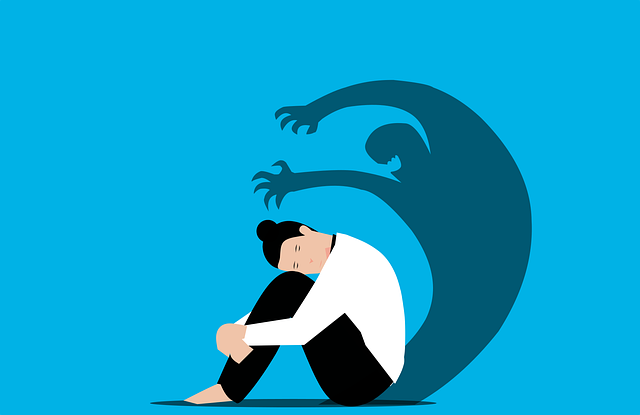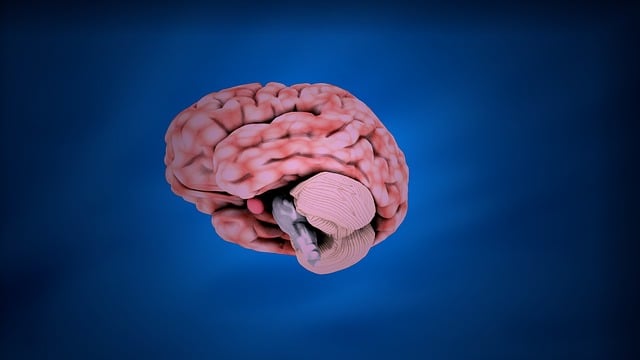Mindfulness meditation, particularly combined with Exposure and Response Prevention (ERP) therapy, is a powerful tool for enhancing mental wellness in elders. By focusing on the present moment, observing thoughts without judgment, and practicing calm awareness, seniors can effectively manage age-related stress and anxiety. ERP helps process past traumatic experiences, reduces avoidance behaviors, and improves emotional regulation, while combining mindfulness with journaling or trauma support services facilitates memory processing and healing. This holistic approach empowers elders to take control of their mental health, leading to improved mood management and overall well-being. Public awareness campaigns promoting ERP can normalize these practices, encouraging elders to embrace challenges with emotional balance and significantly improving quality of life.
Unwind your mind and embrace tranquility with mindfulness meditation, a powerful tool for elders seeking mental well-being. This comprehensive guide explores how mindfulness can alleviate stress and anxiety, offering insights into its unique therapeutic benefits, especially through Exposure and Response Prevention techniques. We provide a step-by-step approach to starting, maintaining, and overcoming challenges in your practice. Discover how regular mindfulness meditation can enhance your quality of life as you age.
- Understanding Mindfulness Meditation for Elders
- The Benefits of Exposure and Response Prevention in Aging
- Step-by-Step Guide to Starting a Mindfulness Practice
- Overcoming Challenges and Maintaining a Consistent Routine
Understanding Mindfulness Meditation for Elders

Mindfulness meditation has gained significant popularity as a powerful therapy for elders seeking to enhance their mental wellness and overall quality of life. This ancient practice involves focusing on the present moment, observing thoughts and feelings without judgment, and cultivating a sense of calm awareness. For seniors, it offers a unique approach to managing age-related challenges, such as stress, anxiety, and even trauma.
Exposure and response prevention (ERP), a therapeutic technique often integrated into mindfulness meditation, is particularly beneficial for elders dealing with past traumatic experiences. By gradually exposing oneself to triggers associated with trauma while practicing mindfulness, individuals can learn to manage their responses, reduce avoidance behaviors, and improve emotional regulation. Additionally, regular meditation practice combined with mental wellness journaling exercises or trauma support services can aid in processing memories, promoting healing, and achieving a sense of peace. This holistic approach encourages elders to take control of their mental health, fostering improved mood management and overall well-being.
The Benefits of Exposure and Response Prevention in Aging

As individuals age, incorporating mindfulness practices like Therapy for Elders through Exposure and Response Prevention (ERP) can offer significant advantages. ERP is a powerful tool to enhance emotional well-being promotion techniques, especially in addressing specific fears or anxieties that may arise with aging. By gradually exposing elders to situations or objects they might find distressing and then teaching them responsive coping strategies, this therapy empowers them to manage their reactions effectively.
This approach not only helps in Self-Care Routine Development for Better Mental Health but also fosters a sense of control and resilience. Public Awareness Campaigns Development centered around mindfulness and ERP can play a pivotal role in normalizing these practices, encouraging elders to embrace changes and challenges with calmness and composure, ultimately leading to improved quality of life and overall emotional balance.
Step-by-Step Guide to Starting a Mindfulness Practice

Starting a mindfulness practice can be a transformative journey for elders looking to enhance their mental health awareness and improve self-esteem. Here’s a step-by-step guide to get you started:
1. Find a Quiet Space: Create a peaceful environment free from distractions. Whether it’s your bedroom, a garden, or any place that feels calming, having a dedicated space for your practice is beneficial. Begin each session by settling into this quiet haven.
2. Set a Realistic Goal: Start small, perhaps with just 5-10 minutes per day. Consistency is key; focus on establishing a routine rather than attempting lengthy sessions initially. You can gradually increase the duration as you become more comfortable.
3. Focus on Your Breath: Close your eyes and turn your attention to your breath. Notice the sensation of air flowing in and out. This simple act anchors you in the present moment, fostering mental clarity. Remember, mindfulness isn’t about emptying your mind but observing thoughts and sensations without judgment.
4. Observe Without Judgment: Thoughts will inevitably arise, especially if you’re new to meditation. Instead of getting caught up in them or trying to suppress them, acknowledge their presence and let them pass like clouds in the sky. It’s normal for the mind to wander; gently guide your focus back to your breath each time this happens.
5. Practice Regularly: Aim for a daily practice to reap the benefits of mindfulness meditation. Over time, you may find that it becomes an integral part of your day, offering anxiety relief and enhancing your overall mental health awareness, including improvements in self-esteem.
6. Explore Guided Meditations: For beginners, guided meditations can be incredibly helpful. There are many apps and online resources available that offer step-by-step instructions tailored for specific goals, such as exposure and response prevention techniques to manage anxiety.
Overcoming Challenges and Maintaining a Consistent Routine

Overcoming Challenges in Mindfulness Meditation is a significant step in fostering mental well-being, especially for elders who may face unique obstacles. Many individuals struggle with maintaining a consistent meditation practice due to various factors such as physical limitations, cognitive decline, or simply finding the time amidst daily responsibilities. However, these challenges can be seen as opportunities for growth and self-discovery. For instance, adapting mindfulness techniques through Therapy for Elders Exposure and Response Prevention (TEERP) offers innovative ways to engage in peaceful practices tailored to their needs. TEERP focuses on exposure to triggers with guided responses, helping elders manage stress and anxiety while meditating.
Establishing a routine becomes easier when we incorporate effective communication strategies and conflict resolution techniques. By sharing goals and experiences within support groups or with loved ones, individuals can gain encouragement and accountability. Trauma Support Services also play a vital role in providing resources and guidance for those with past traumatic experiences, ensuring that mindfulness meditation remains a safe and therapeutic practice. Consistency is key; even short meditation sessions can have lasting benefits when integrated into daily life, making it a powerful tool for managing stress and improving overall mental health.
Mindfulness meditation offers elders a powerful tool for enhancing mental well-being and quality of life. By understanding its foundational concepts, such as exposure and response prevention, individuals can harness the therapeutic benefits tailored to aging minds. The provided step-by-step guide and strategies for overcoming challenges ensure consistency in practice, ultimately fostering resilience and promoting a more fulfilling life. Incorporating mindfulness into daily routines can revolutionize elder care, encouraging a vibrant and peaceful existence.









